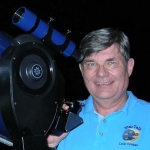Questions about flying with CPAP are raised here periodically. DOT's official regulations from their website can be accessed as a pdf. Look for the "passengers with disabilities" section.
http://airconsumer.ost.dot.gov/rules/rules.htm
There is also a pertinent FAQ pdf accessible from the same webpage.
In summary:
Airlines may not refuse to carry a person with a disability.
Airlines must allow XPAP equipment in the passenger cabin. In the US, XPAP equipment may not be counted against the carryon allowance .
With few exceptions, airlines must allow the use of XPAP during the flight. The device must be FAA certified. The symbol is the image of an airplane inside a circle on the manufacturer's label.
Airlines are not required to provide electricity or oxygen, and may have safety regulations regarding how batteries must be packed or stowed. (CPAP.com's batteries are approved.)
Airlines may not require a doctors' statement from a person with uncomplicated sleep apnea.
The rules apply to foreign airlines that serve the US.
There is a procedure for complaining to the DOT about a noncompliant airline.
Air travel with XPAP--official DOT regs
- M.D.Hosehead
- Posts: 742
- Joined: Thu Jun 24, 2010 7:16 pm
- Location: Kansas
Air travel with XPAP--official DOT regs
_________________
| Mask: Forma Full Face CPAP Mask with Headgear |
| Additional Comments: MaxIPAP 15; MinEPAP 10; Also use Optilife nasal pillow mask with tape |
Re: Air travel with XPAP--official DOT regs
And therein lies the problem... No manufacturer that I know of has gone thru the expense and hassle of having each of their models tested/certified. Without that certification, all other requirements are moot.M.D.Hosehead wrote:The device must be FAA certified.
The OSA patient died quietly in his sleep.
Unlike his passengers who died screaming as the car went over the cliff...
Unlike his passengers who died screaming as the car went over the cliff...
- M.D.Hosehead
- Posts: 742
- Joined: Thu Jun 24, 2010 7:16 pm
- Location: Kansas
Re: Air travel with XPAP--official DOT regs
Look at the manufacturer's label. On my PRS1, it's on the bottom, and displays the airplane symbol.LinkC wrote:And therein lies the problem... No manufacturer that I know of has gone thru the expense and hassle of having each of their models tested/certified. Without that certification, all other requirements are moot.M.D.Hosehead wrote:The device must be FAA certified.
_________________
| Mask: Forma Full Face CPAP Mask with Headgear |
| Additional Comments: MaxIPAP 15; MinEPAP 10; Also use Optilife nasal pillow mask with tape |
Re: Air travel with XPAP--official DOT regs
ResMed's website says all their current models and a number of recent models have been tested and certified. I haven't checked my machine to see if there is symbol to reflect that.LinkC wrote:And therein lies the problem... No manufacturer that I know of has gone thru the expense and hassle of having each of their models tested/certified. Without that certification, all other requirements are moot.M.D.Hosehead wrote:The device must be FAA certified.
The biggest problem isn't likely to be the regs. It's likely to be personnel who don't know (or care) about the regs and who are impervious to information.
_________________
| Mask: Swift™ FX Nasal Pillow CPAP Mask with Headgear |
| Humidifier: S9™ Series H5i™ Heated Humidifier with Climate Control |
| Additional Comments: Don't assume physicians have an easier time getting information or resources from equipment manufacturers! |
Untreated AHI: 86
Treated AHI: 0.4
Treated AHI: 0.4
- M.D.Hosehead
- Posts: 742
- Joined: Thu Jun 24, 2010 7:16 pm
- Location: Kansas
Re: Air travel with XPAP--official DOT regs
That's a valid point, but I think if you insist politely, you will be accommodated. To see why, read on.mstevens wrote:[
The biggest problem isn't likely to be the regs. It's likely to be personnel who don't know (or care) about the regs and who are impervious to information.
§ 382.133 What are the requirements concerning the evaluation and use of passenger-supplied electronic devices that assist passengers with respiration in the cabin during flight?
(a) Except for on-demand air taxi operators, as a U.S. carrier conducting passenger service you must permit any individual with a disability to use in the passenger cabin during air transportation, a ventilator, respirator, continuous positive airway pressure machine, or an FAA-approved portable oxygen concentrator (POC) on all flights operated on aircraft originally designed to have a maximum passenger capacity of more than 19 seats, unless:
This rule requires U.S. carriers to permit individuals to use electronic respiratory assistive devices in the passenger cabin so long as the devices have been tested and labeled by their manufacturer(s) as meeting the applicable FAA requirements for medical portable electronic devices as described in FAA Advisory Circular No. 91.21-1B (the FAA-approved POCs would also be subject to the requirements of Special Federal Aviation Regulation 106) and the device can be stowed consistent with FAA cabin safety requirements. At present, a label indicating that the device complies with RTCA standards meets FAA requirements and need not specifically state that the device is FAA approved.
§382.145 What records concerning training must carriers retain?
(a) As a carrier that operates aircraft with 19 or more passenger seats, you must incorporate procedures implementing the requirements of this Part in the manuals or other guidance or instructional materials provided for the carrier and contract personnel who provide services to passengers, including, but not limited to, pilots, flight attendants, reservation and ticket counter personnel, gate agents, ramp and baggage handling personnel, and passenger service office personnel. You must retain these records for review by the Department on the Department's request.
(b) You must retain for three years individual employee training records demonstrating that all persons required to receive initial and refresher training have done so.
For future overnight flights, I plan to carry a copy of the regs, relevant sections highlighted, along with a copy of my prescription.§382.159 How are complaints filed with DOT?
(a) Any person believing that a carrier has violated any provision of this Part may seek assistance or file an informal complaint at the Department of Transportation no later than 6 months after the date of the incident by either:
(1) going to the web site of the Department’s Aviation Consumer Protection Division at http://airconsumer.ost.dot.gov and selecting “Air Travel Problems and Complaints,” or
(2) writing to Department of Transportation, Aviation Consumer Protection Division (C-75), 1200 New Jersey Avenue, SE, Washington, DC 20590.
(b) Any person believing that a carrier has violated any provision of this Part may also file a formal complaint under the applicable procedures of 14 CFR Part 302.
(c) You must file a formal complaint under this Part within six months of the incident on which the complaint is based in order to ensure that the Department of Transportation will investigate the matter.
Obviously, there's much more in the document itself. An XPAP-er contemplating an overnight flight should review the whole document, IMO. That's the reason I started this thread.
_________________
| Mask: Forma Full Face CPAP Mask with Headgear |
| Additional Comments: MaxIPAP 15; MinEPAP 10; Also use Optilife nasal pillow mask with tape |
Re: Air travel with XPAP--official DOT regs
I have never had a problem taking my machine through airport security. Just follow the security proceedures and put the computer component (only) in a separate bin (it is treated like a laptop computer).
CPAP is so common that my machine (and bag) has alway been recognized as a medical device. FYI, I usually allow extra time as sometimes it gets pulled off and swab tested.
CPAP is so common that my machine (and bag) has alway been recognized as a medical device. FYI, I usually allow extra time as sometimes it gets pulled off and swab tested.
Re: Air travel with XPAP--official DOT regs
The issue isn't so much carrying it on, that's rarely a problem anymore.
It's USING it in-flight.
It's USING it in-flight.
The OSA patient died quietly in his sleep.
Unlike his passengers who died screaming as the car went over the cliff...
Unlike his passengers who died screaming as the car went over the cliff...













